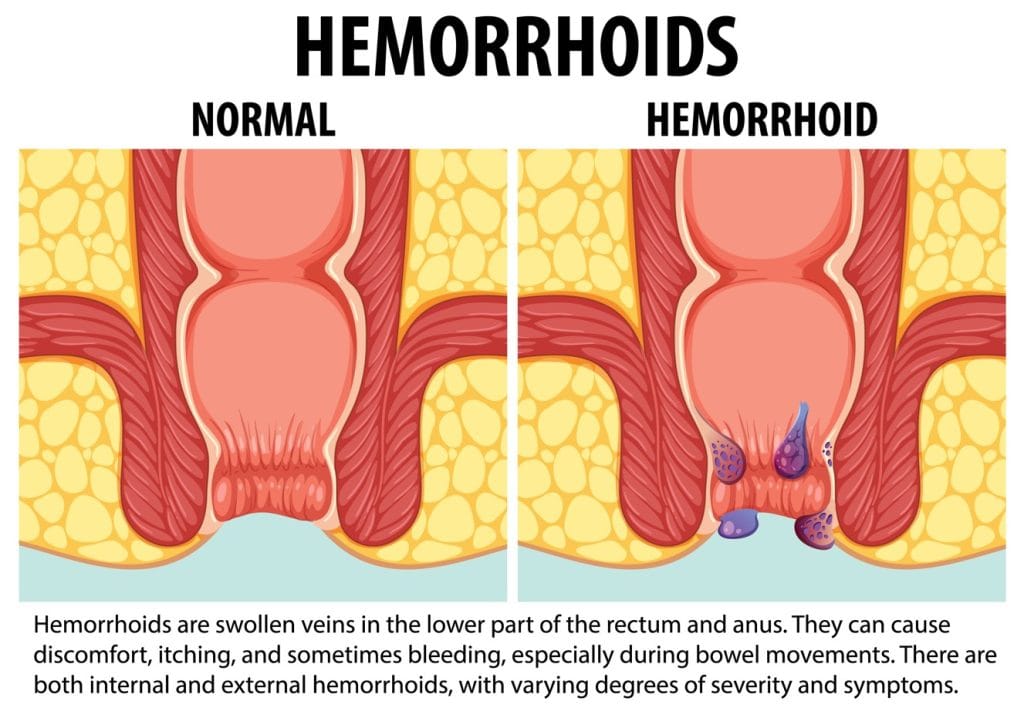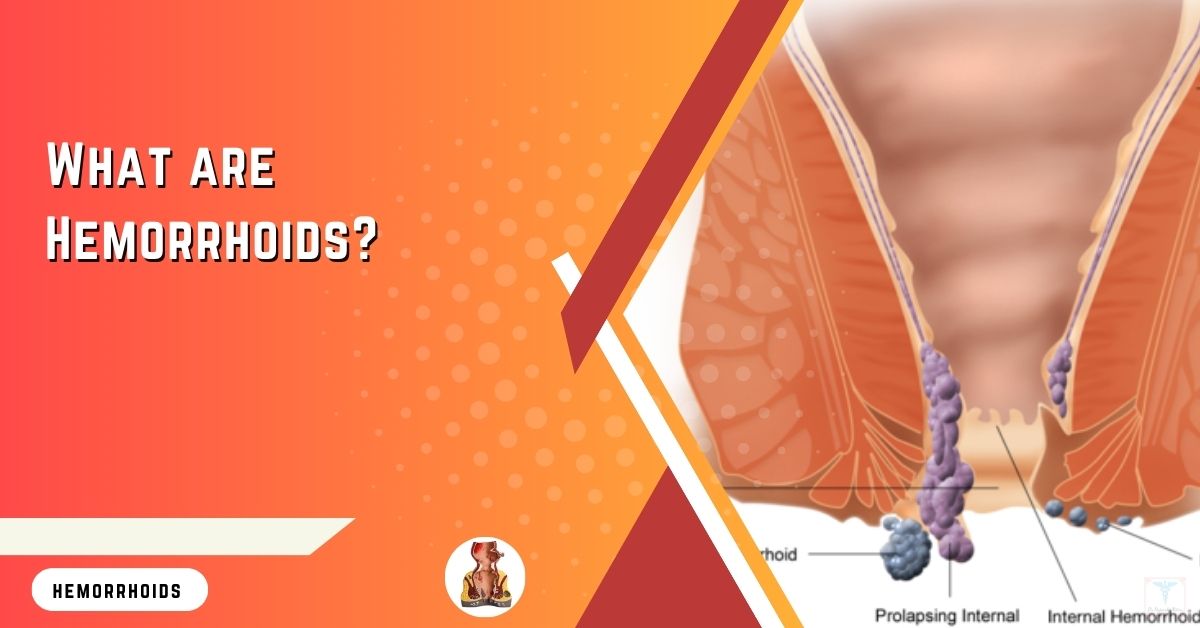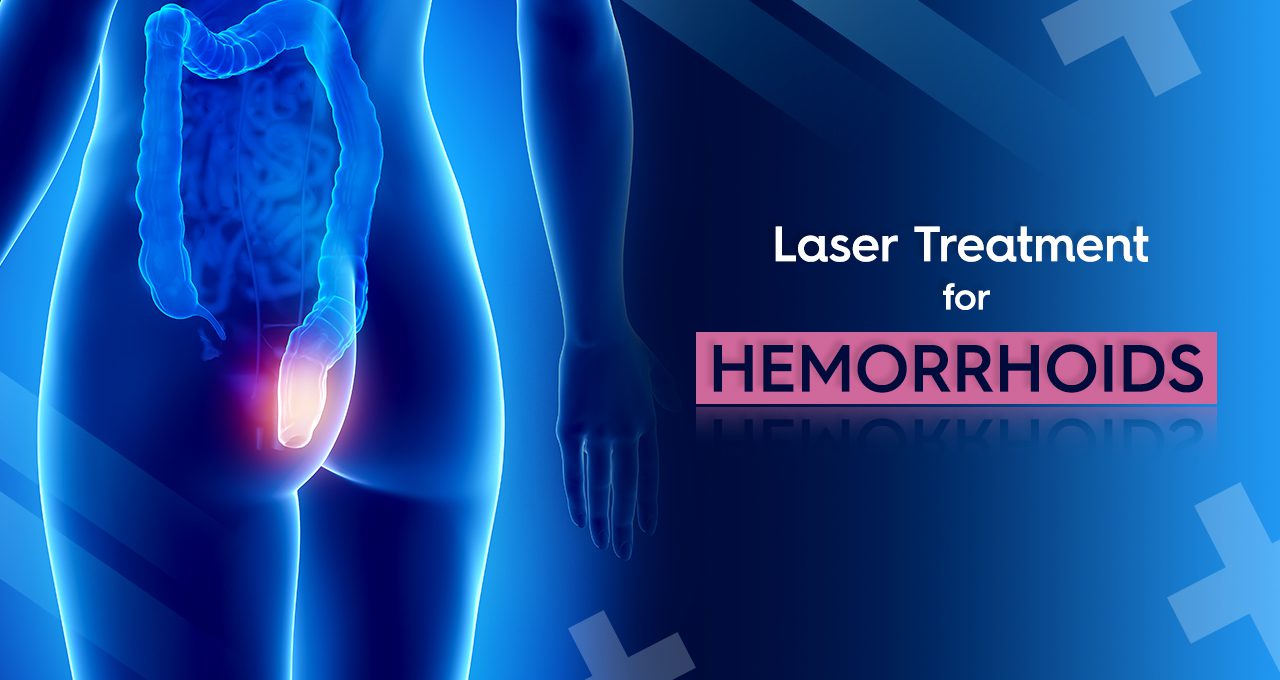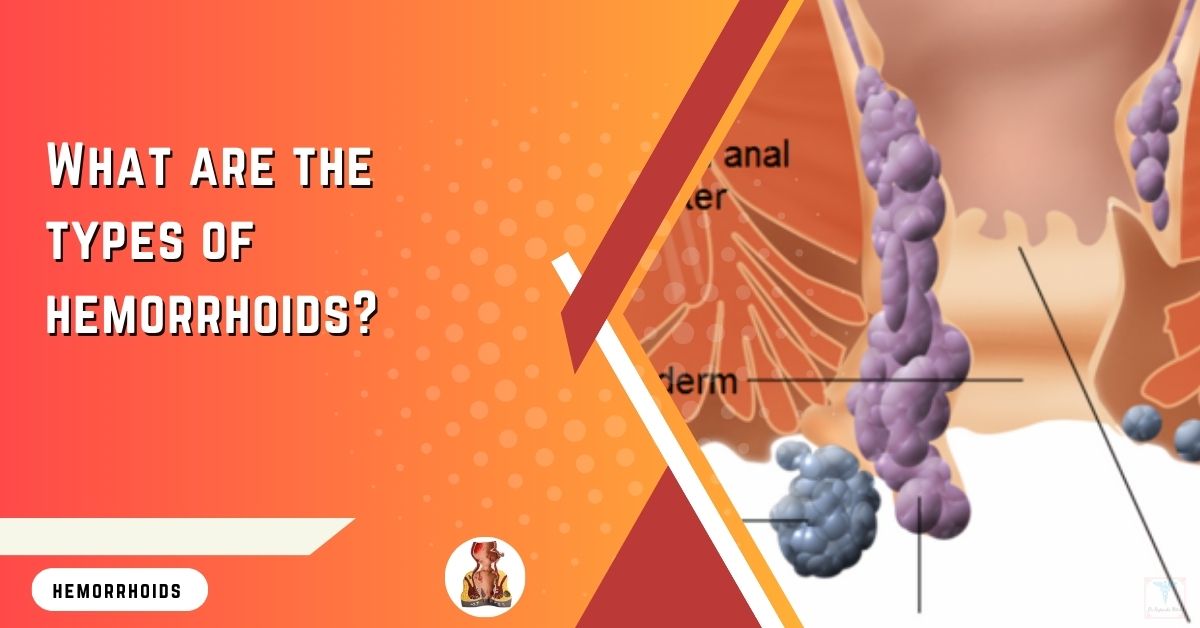Although many people are now suffering from it, not all people know what are hemorrhoids. Hemorrhoids, also known as piles, are swollen and inflamed veins in the anus and lower rectum.
They are very common, with around 50% of people experiencing them at some point. There are internal and external hemorrhoids, which differ in their location and symptoms.
The exact cause is often unknown, but potential factors include straining during bowel movements, sitting for long periods, obesity, pregnancy, aging, and chronic constipation or diarrhea. Hemorrhoids can usually be effectively treated with simple at-home remedies, but more advanced cases may require medical procedures.
What Are Hemorrhoids: Quick Facts
- Hemorrhoids are swollen veins in the anus and lower rectum, classified as internal or external based on location.
- Straining during bowel movements, constipation, diarrhea, obesity, pregnancy, aging, and genetics can contribute to hemorrhoid development.
- Symptoms include anal itching, bleeding, mucus discharge, and painful swelling. Severe internal cases may prolapse.
- Diagnosis often involves a physical exam, with additional tests sometimes needed to rule out other conditions.
- Initial management includes sitz baths, OTC medication, topical treatments, dietary modifications, and stool softeners.
- If conservative measures fail, office-based procedures or surgery may be considered for persistent, severe cases.

What are Internal Hemorrhoids?
Internal hemorrhoids form inside the anus and the lower rectum, where there are veins that swell and protrude into the anal canal.
When irritated, they can be itchy, bleed painlessly, and cause mucus discharge. Severe cases can prolapse through the anus. Dietary changes, topical treatments, and simple procedures can provide relief.
What are External Hemorrhoids?
External hemorrhoids develop under the skin around the outside of the anus. They are often painful if thrombosed when a blood clot forms. The pain may persist for hours to days.
Warm baths, OTC medication, and surgical procedures can help manage symptoms. Thrombosed external hemorrhoids often rupture and heal on their own.
What Causes Hemorrhoids?
There are many potential contributing factors, including straining during bowel movements, sitting for long periods of time, chronic constipation or diarrhea, obesity, pregnancy, low-fiber diets, aging, and genetics.
Increased pressure in the lower rectum leads to swelling of the hemorrhoidal veins.
How are Hemorrhoids Diagnosed?
A physician can often diagnose hemorrhoids through a physical exam of the anus and rectum. In some cases, additional tests like endoscopy, colonoscopy or sigmoidoscopy may be recommended to rule out other conditions with similar symptoms.
Your medical history and description of symptoms are important for an accurate diagnosis.
How are Hemorrhoids Treated?
Initial treatment focuses on relieving symptoms with simple measures like sitz baths, over-the-counter pain medications, topical creams, dietary changes, and stool softeners.
If these are ineffective, office-based treatments like rubber band ligation can be considered. Surgery is reserved for severe, persistent cases unresponsive to other interventions.
Final Note From Dr. Rajarshi Mitra
I hope this overview of hemorrhoids has provided you with a thorough yet easy-to-understand explanation of this common condition. Please let me know if you have any other questions!
I’m always happy to clarify any of your queries on Hemorrhoids. My goal is to ensure you feel fully informed and reassured.



















